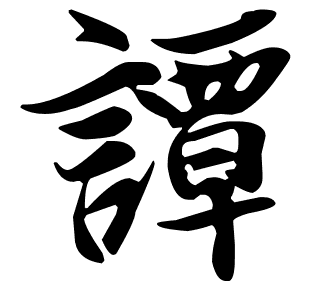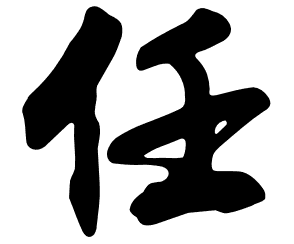| Pronunciation | /ˈlaʊ/ |
|---|---|
| Origin | |
| Derivation | Surname of the Han Dynasty's ruling family |
| Meaning | "one who came from the Lion" (German) It's an archaic word for a type of axe (Chinese) |
| Region of origin | Chinese-speaking countries Korean-speaking countries Vietnamese-speaking countries German-speaking countries |
| Other names | |
| Variant form(s) | Liu (surname) |
Lau is a surname. Notable people with the surname include:

Chen ( ) is a common Chinese-language surname and one of the most common surnames in Asia. It is the most common surname in Taiwan (2010) and Singapore (2000). Chen is also the most common family name in Guangdong, Zhejiang, Fujian, Macau, and Hong Kong. It is the most common surname in Xiamen, the ancestral hometown of many overseas Hoklo.
Deng is an East Asian surname of Chinese origin which has many variant spellings and transliterations. It is a transcription of 邓 or 鄧 (traditional). In 2019, Deng was the 21st most common surname in mainland China.
Luo or Lo refers to the Mandarin romanizations of the Chinese surnames 羅 and 駱. Of the two surnames, wikt:罗 is much more common among Chinese people. According to the Cantonese pronunciation, it can also refer to 盧.
Ng is both a Cantonese transliteration of the Chinese surnames 吳/吴 and 伍 and also a common Hokkien transcription of the surname 黃/黄.
Wong is the Jyutping, Yale and Hong Kong romanization of the Chinese surnames Huang and Wang, two ubiquitous Chinese surnames; Wang, another common Chinese surname; and a host of other rare Chinese surnames, including Heng, Hong, Hong, and Hong

Ye is a Chinese-language surname. It is listed 257th in the Song dynasty classic text Hundred Family Surnames, and is the 43rd most common surname in China, with a population of 5.8 million as of 2008 and 2019.

Xie is a Chinese-language surname. lt is usually romanized as "Hsieh" in Taiwan. It is estimated that there are more than ten million people with this surname, most of whom live in Taiwan, Southern China, South East Asia, America, Europe and Africa. It is particularly common in Taiwan where it is the 13th most common surname in 2016. It is also very common in the east Asian diaspora which historically tended to have disproportionately emigrated out of southern China. A 2013 study found that Xie was the 23rd most common surname in China, with 0.79% of the population having this surname. In 2019 it was again the 23rd most common surname in mainland China. Most Xie are from southern China. It is the 34th name on the Hundred Family Surnames poem.
Liang is an East Asian surname of Chinese origin. The surname is often transliterated as Leung or Leong according to its Cantonese and Hakka pronunciation, Neo / Lio / Niu, or Liong (Fuzhou). In Indonesia, it is known as Liong or Nio. It is also common in Korea, where it is written Yang (양) or Ryang (량). In Vietnam, it is pronounced as Lương.

Cài is a Chinese-language surname that derives from the name of the ancient Cai state. In 2019 it was the 38th most common surname in China, but the 9th most common in Taiwan, where it is usually romanized as "Tsai", "Tsay", or "Chai" and the 8th most common in Singapore, where it is usually romanized as "Chua", which is based on its Teochew and Hokkien pronunciation. Koreans use Chinese-derived family names and in Korean, Cai is 채 in Hangul, "Chae" in Revised Romanization, It is also a common name in Hong Kong where it is romanized as "Choy", "Choi" or "Tsoi". In Macau, it is spelled as "Choi". In Malaysia, it is romanized as "Choi" from the Cantonese pronunciation, and "Chua" or "Chuah" from the Hokkien or Teochew pronunciation. It is romanized in the Philippines as "Chua" or "Chuah", and in Thailand as "Chuo" (ฉั่ว). Moreover, it is also romanized in Cambodia as either "Chhay" or "Chhor" among people of full Chinese descent living in Cambodia and as “Tjhai”, "Tjoa" or "Chua" in Indonesia.

Tan is a common Chinese surname 譚, and is considered the 56th most common.

Lin is the Mandarin romanization of the Chinese surname written 林, which has many variations depending on the language and is also used in Taiwan, Singapore, Malaysia, Philippines, Indonesia, Japan, Korea, Myanmar, Vietnam, Thailand, Cambodia.

Ma is a Chinese family name. The surname literally means "horse". As of 2006, it ranks as the 14th most common Chinese surname in mainland China. In 2019 it was the 13th most common surname in mainland China. A 2013 study found it to be the 13th most common, shared by 17,200,000 people or 1.290% of the population, with the province with the most being Henan. It is the 52nd name on the Hundred Family Surnames poem.

Zhōu is a Chinese-language surname. In places which use the Wade–Giles romanization such as Taiwan, Zhou is usually spelled as Chou, and it may also be spelled as Chiau, Chau, Chao, Chew, Chow, Chiu, Cho, Chu, Jhou, Jou, Djou, Jue, Jow, Joe, or Tseu, depending on regional pronunciation.

Zhong is pinyin transliteration of several Chinese surnames, including Zhōng (鍾/鐘/钟), and Zhòng (仲). These are also transliterated as Chung, Cheong or Choong, Tjung or Tjoeng, and Chiong. It is the 53rd most common surname in Mainland China.

Zeng is a Chinese family name. In Cantonese, it is Tsang; In Wade–Giles, such as those in Taiwan, Tseng or Tzeng; in Malaysia and Singapore, Tsen, Chen or Cheng; in the Philippines, Chan; in Indonesia, Tjan; in Vietnam, Tăng. The surname Zeng is the 32nd most common surname in mainland China as of 2019. It is the 16th most common surname in Taiwan. It meant "high" or "add" in ancient Chinese. Zeng was listed 385th on the Hundred Family Surnames.
Tang is a pinyin romanization of various Chinese surnames.
Hong is the pinyin romanization of the Chinese surname 洪 (Hóng). It was listed 184th among the Song-era Hundred Family Surnames. Today it is not among the 100 most common surnames in mainland China but it was the 15th-most-common surname in Taiwan in 2005. As counted by a Chinese census, Taiwan is the area with the largest number of people with the name. It is also the pinyin romanization of a number of less-common names including Hóng, Hóng, and Hóng. All of those names are romanized as Hung in Wade-Giles.

Guan is a Chinese surname. Guan is 394th in the Hundred Family Surnames.

Rén is the Mandarin pinyin romanisation of the Chinese surname written 任 in Chinese script. It is romanised as Jen in Wade–Giles, and Yam or Yum in Cantonese. It is listed 58th in the Song dynasty classic text Hundred Family Surnames. As of 2008, it is the 59th most common surname in China, shared by 4.2 million people. In 2019 it was the 49th most common surname in Mainland China.